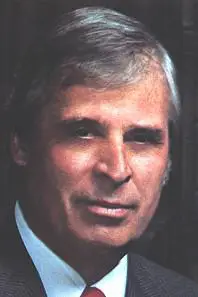Eldon Rudd

Eldon Dean Rudd was born in Yavapai County, Arizona, on 15th July, 1920. After graduating from the University of Arizona he joined the United States Marines Corps (1942-1946). He worked as a lawyer before becoming a member of the Federal Bureau of Investigation. As a FBI agent he took part in the investigation of the assassination of John F. Kennedy.
A member of the Republican Party, Rudd was elected to the 95th Congress and took his seat in January, 1977. At this time Thomas N. Downing began campaigning for a new investigation into the assassination of John F. Kennedy. Downing said he was certain that Kennedy had been killed as a result of a conspiracy. He believed that the recent deaths of Sam Giancana and Johnny Roselli were highly significant. He also believed that the Central Intelligence Agency and the Federal Bureau of Investigation had withheld important information from the Warren Commission. Downing was not alone in taking this view. In 1976, a Detroit News poll indicated that 87% of the American population did not believe that Lee Harvey Oswald was the lone gunman who killed Kennedy.
Thomas N. Downing named Richard Sprague as chief counsel of the House Select Committee on Assassinations. Gaeton Fonzi was to later say: "Sprague was known as tough, tenacious and independent. There was absolutely no doubt in my mind when I heard of Sprague's appointment that the Kennedy assassination would finally get what it needed: a no-holds-barred, honest investigation. Which just goes to show how ignorant of the ways of Washington both Sprague and I were".
Sprague quickly assembled a staff of 170 lawyers, investigators and researchers. On 8th December, 1976, Sprague submitted a 1977 budget of $6.5 million. Frank Thompson, Chairman of the House Administration Committee made it clear he opposed the idea of so much money being spent on the investigation.
Smear stories against Sprague began appearing in the press. David B. Burnham of The New York Times reported that Sprague had mishandled a homicide case involving the son of a friend. Members of Congress joined in the attacks and Robert E. Bauman of Maryland claimed that Sprague had a "checkered career" and was not to be trusted. Richard Kelly of Florida called the House Select Committee on Assassinations a "multimillion-dollar fishing expedition for the benefit of a bunch of publicity seekers."
Rudd was also opposed to the investigation. He declared the Committee had "already fanned the flames of rumour, distortion and unwanted distrust of law inforcement agencies." However, Walter E. Fauntroy defended the work of Sprague: "threshold inquiries by a thoroughly professional staff... in the last three months have produced literally a thousand questions unanswered by the investigations of record."
On 2nd February, 1978, Henry Gonzalez replaced Thomas N. Downing as chairman of the House Select Committee on Assassinations. Gonzalez immediately sacked Richard Sprague as chief counsel. Sprague claimed that only the fill committee had the power to dismiss him. Walter E. Fauntroy agreed with Sprague and launched a campaign to keep him as chief counsel. On 1st March, Gonzalez resigned describing Sprague as "an unconscionable scoundrel"
Rudd retired from Congress in January, 1987.
Eldon Dean Rudd died in Scottsdale, Arizona, on 8th February, 2002.

